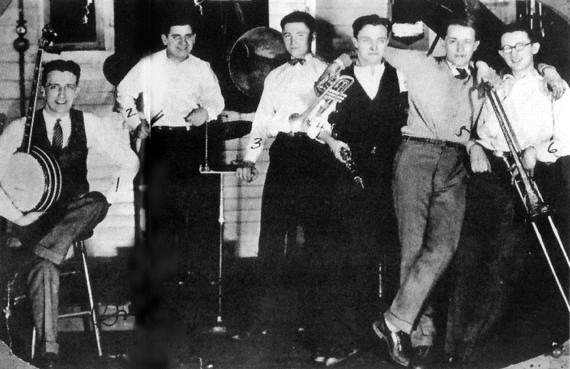
America in the 1920s: Wall Street was on the rise, cops were on the take, jazz was in the air, and alcohol had been banished—but it certainly hadn’t vanished.
On January 16, 1920, alcohol became illegal in the United States of America. The same year, Mamie Smith recorded "Crazy Blues," which would sell a million copies and help pave the way for the music-media explosion of the 1920s--a decade often called the Jazz Age, but one you could simply call the Age of Sound, because suddenly sound was everywhere, in the form of radio, phonographs, and by 1927, talking pictures.
Jazz was indeed a big part of that sound, and with the coming of Prohibition it flourished in the underground bars known as "speakeasies" around the country--a new music born in a time of complexity and change, and now aligned, for better or worse, with a culture of forbidden liquor that also gave rise to organized crime.
Historian Michael McGerr, author of A Fierce Discontent: The Rise and Fall of the Progressive Movement in America, 1870-1920, joins the program this week to discuss jazz and Prohibition, offering his view that the relationship was more complex and nuanced than we've been led to believe. We'll also hear Prohibition-era jazz from Louis Armstrong, Bix Beiderbecke, Duke Ellington, Paul Whiteman, Bessie Smith, and more.
Another Round
- The Jazz Age and Prohibition (NEA Jazz in the Schools)
- Five Jazz Sides For The Age of Prohibition (post I wrote for NPR's Take Five)









